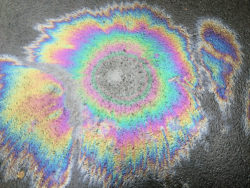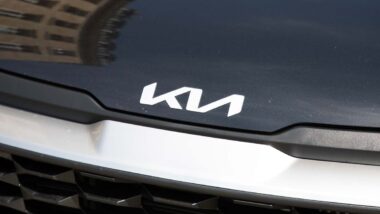Top Class Actions’s website and social media posts use affiliate links. If you make a purchase using such links, we may receive a commission, but it will not result in any additional charges to you. Please review our Affiliate Link Disclosure for more information.

Is it safe to drive a car with a fuel leak?
It’s never safe to drive a car with a fuel leak. Fuel leaks are one of the top causes of vehicle fires. Gas is highly flammable, so it is highly likely that the gas could start a fire, either in the vehicle itself or from the fuel left behind from a leaking vehicle.
If a car catches fire when a driver and passengers are in it, they could be seriously injured or killed. Even if there is no one in the car when the vehicle catches fire, anyone near the burning car could be seriously injured. Additionally, it is important to not smoke in a car with a gas leak, as smoking can increase the risk that a fire may start.
In addition to risks of fire, driving a car with a fuel leak can expose you to carbon monoxide. Carbon monoxide is an odorless, colorless gas that is poisonous if breathed in. It is present in gasoline and is released when gasoline burns. If inhaled in small amounts, it can cause symptoms like those of a cold or flu. In large quantities, it can be fatal.
How can I tell if my car has a fuel leak?
If your car has a fuel leak, you will likely smell gas. You may also be able to see a puddle of fuel under your car, or where your car was parked, after it has been moved. If you notice that your car seems to be using more gasoline than it used to, it may be because there is a hole in your gas tank that is leaking gas.
Additionally, if your car has a “rough idle” — if it does not have a smooth sound when it is turned on but is not moving. This may be accompanied by strain hen you try to start the engine. One or both of these occurrences may indicate that you have a gas leak.
What causes a fuel leak?
Fuel leaks can happen anywhere within your car’s fuel system, and for a variety of reasons. One possibility is if there’s a hole in the gas tank. A hole can develop in the tank if it rots or wears out. In some cases, fuel tanks may fail and develop holes unexpectedly.
In other cases, fuel lines may fail, as can gas tank caps. Fuel injectors and fuel pressure regulators may break. There could also be a problem with the gas tank vent hose.
If there’s a problem with the design or manufacture of the car that leads to a fuel leak, the manufacturer may issue a recall. Vehicles under recall are usually brought in for repairs or replacement of a defective part at no cost to the vehicle owner or lessee. This can help prevent fuel tank leaks before they start.
Is it easy to fix a car with a fuel leak?
If the problem behind a fuel leak is a hole in the gas tank, it can be fairly easy for a mechanic to patch the hole without replacing the whole tank — if the hole is small, that is. If the hole is larger, the entire gas tank may need to be replaced. Other problem may be more costly to fix.
If you believe your car has a gas leak, you should get it serviced as soon as possible. Don’t drive the car to the shop, even if it’s just a short distance; have it towed instead.
Join a Free Vehicle Safety Class Action Lawsuit Investigation
If you own a vehicle that you believe has a safety defect and you are outside of the warranty period or you believe the defect should be covered by the warranty and it’s not, or you or a family member have been injured by a safety related defect, you may qualify to join this vehicle safety defect class action lawsuit investigation.
This article is not legal advice. It is presented
for informational purposes only.
ATTORNEY ADVERTISING
Top Class Actions is a Proud Member of the American Bar Association
LEGAL INFORMATION IS NOT LEGAL ADVICE
Top Class Actions Legal Statement
©2008 – 2024 Top Class Actions® LLC
Various Trademarks held by their respective owners
This website is not intended for viewing or usage by European Union citizens.














